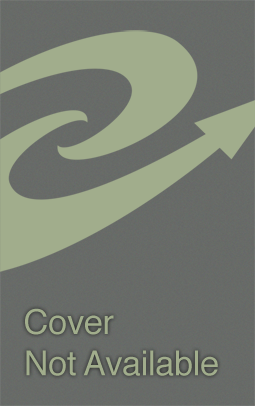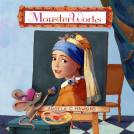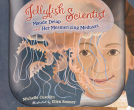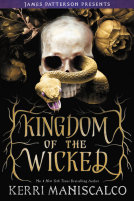
The Inferno
The Definitive Illustrated Edition
by Dante Alighieri
This title was previously available on NetGalley and is now archived.
Send NetGalley books directly to your Kindle or Kindle app
1
To read on a Kindle or Kindle app, please add kindle@netgalley.com as an approved email address to receive files in your Amazon account. Click here for step-by-step instructions.
2
Also find your Kindle email address within your Amazon account, and enter it here.
Pub Date Jul 20 2016 | Archive Date Nov 16 2016
Description
Dante's depictions of hell and its grotesque punishments found their ideal match in the hands of the eminent nineteenth-century illustrator Gustave Doré. Unable to find a sponsor, the artist published his stunning engravings for The Inferno at his own expense. An instant and enduring success, Doré's images made a lasting impression on the public imagination. This volume's enchanting translation and unforgettable illustrations offer readers a perfect blend of literary and artistic skill.
Available Editions
| EDITION | Paperback |
| ISBN | 9780486804095 |
| PRICE | $17.95 (USD) |
Featured Reviews
 Joseph S, Reviewer
Joseph S, Reviewer
The Inferno or Dante Alighieri need little introduction. Most people are familiar with the Divine Comedy regardless of their religion or lack of one. The Divine Comedy is one man's journey with his guide, through Hell and Purgatory, Virgil. Beatrice is his guide in heaven. The Inferno is the journey through the nine layers of hell and, to many, the most interesting of the three journies. Purgatory is a boring place by design and Heaven is well, heaven.
I always felt The Inferno contained the best place to spend eternity, but not in an AC/DC "Hell Ain't a Bad Place to Be" way. The outermost layer is Limbo and it is the place for the unbaptized and the noble pagans -- Socrates, Plato, Saladin and others. Here Dante answers his days equivalent of is Gandhi in Heaven or Hell? He was a great person, wise, peaceful, a good leader so he should be in heaven, but he is not Christian so how can he be any place but Hell? Dante takes care of this in Limbo. It's a part of Hell, but the company there is great. There is also a chance to leave Limbo as Jesus and a few other Biblical characters did by the intervention of God.
As one descends the circles, each for a particular offence, lust, greed, wrath, heresy, violence and so on, the punishments increase in severity until the inner circle of hell where the three greatest enemies of man are gnawed on by Satan. The three are a bit dated but fitting for Dante's time. Who else resides in Hell? Dante's enemies. If you can't get even in life; get even in eternity or your creation of it.
Dante's "The Divine Comedy" was unique in its style the rhyme scheme reflective of the Trinity and the number 100 -- the perfect number. His work is divided up into three sections of thirty-three cantos with a single cantos introduction making 100 cantos. Three is used through the book three times three layers of hell and so on. The Inferno is filled with symbolism and hidden meanings. One can spend a great deal of time studying this story not only for its literary value but also for its political and religious history. Also, unique Dante wrote in Italian instead of the accepted Greek or Latin. This did help make Italian a literary language with Petrarch soon to follow in that tradition. The reason why they wrote in Italian is not well explained, but perhaps had more to do with regional identity. The idea they wrote in Italian so more people could read it is not practical. The educated were literate and to be educated one would learn Latin and Greek. The literates were the rich or the scribes who copied books. Books were very expensive meaning again only the rich and educated could read. The literacy rate at the time was under 10%.
What makes the Dover edition special is the inclusion of Gustave Doré engravings. I first saw Doré’s engravings in a copy of "The Rime of the Ancient Mariner". They were haunting and his work fits into The Inferno well. The engravings add an extra touch of dread and reinforce the entrance sign of Hell “Abandon all hope, ye who enter here!” This edition is also translated by Henry Wadsworth Longfellow who first introduced The Divine Comedy to America in 1867. Well done and very worthwhile addition to anyone’s library.
 Felice L, Book Trade Professional
Felice L, Book Trade Professional
This edition of The Inferno offered visual artistry and a deeper understanding of this text. Dante's Inferno has been on the must-read lists of schools and universities for decades, but this edition really brought it to life, both highlighting its wondrous darkness and magnifying the mystifying interpretation of hell, redemption and baptism by fire that Dante Alighieri painted for us all those centuries ago. However, I wish that the illustrations had included color. Color can work wonders that this one fell short of. Still, The Inferno is a classic and remains so.
 John L, Reviewer
John L, Reviewer
In the style of a youtube comment – Doré brought me here. This seems to be the first pairing of Longfellow's blank verse translation of Dante, with the genius that is the French engraver's work. Here he is suitably brooding, perhaps too so on some dark images – although there might be an imbalance in the reproductions, as others seem to have a very shiny white feel on my e-arc. Sometimes the works gain from that, however, as the spirituality of the piece is clearly evident. On other pages the solemnity, horror and gloom is only befitting, and no amount of holy light can make you believe these images were universally accepted in the 1850s when they were created. The script, for me, felt a lot older than that, and you'd need to be a scholar of some repute to understand everything here (without knowing what a glede is, even the captions can be too obscure). That means this book can't be universally recommended – the text demands annotations galore, or a modernisation. But those artworks – all 70, by wikipedia's count – are a joy to behold.


















